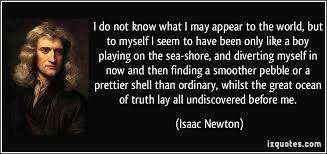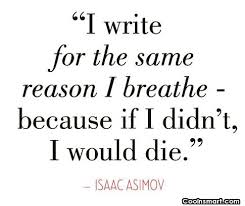 You’re thinking about writing a story. Or you’re already writing a story. Do you know what the theme of that story is? And if not, is that a bad thing?
You’re thinking about writing a story. Or you’re already writing a story. Do you know what the theme of that story is? And if not, is that a bad thing?
According to Chuck Wendig, the most important, and his ‘most favoritest’ question for any writer is: “What is this about?” – what is this story that you’re working on about??? This is not about explaining the plot. It’s about knowing the central theme, the emotional core and truth of your piece.
I love the way he put those words together: central theme. Emotional core. Truth. It got me emotional, and no, I’m not kidding, even though I wish I were. Why did I get emotional? Because that’s what writing is about for me: it’s about a central something … about an intensely emotional core … about truth.
The central something is not necessarily a theme. It can be a single feeling, a single powerful word, a bit of an idea. But it is so strong, so heavy, that everything revolves around it. Nothing can escape its gravitational pull.
I’ll get back to Chuck and his question though. He says you don’t need to explain the plot. Yet you should be able to say that your story is about “how when people are stripped of civilization they turn into monsters, man,” or about “how the son always become the father.” You get the idea.
My question is, when do you need to know that theme? That core? Because I don’t think you can always know it in the beginning. It really depends where you start writing from. And why you start writing.
- Sometimes, you start writing because you’re in pain and you have to put something down on paper to keep from hurting yourself, or from shutting down completely so that no pain could affect you anymore. It’s a kind of emotional death, the place where the bad and the good feelings die. That’s what makes it a really terrible way to deal with pain.
Then there are times when you’re bursting with so much happy energy that you have to “write it out” or you’ll explode. So you start writing from deep inside yourself, from the darkest (when you’re in pain) or the brightest (when you’re happy) corners of your heart. You write to reveal your true self to … yourself. You write so you could understand yourself better.
I’ve written a fair number of pieces from that “deep, raw part of myself”. Most of them will never get to be seen by anyone else but me … or whoever might be part of me. That’s a good thing though. There’s a lot of drama in there that most people couldn’t handle. Writers are a bunch of highly emotional, intense, crazy people. Not kidding.
Anyway, for this kind of writing, I never started with a theme in mind. It was always pure emotion. Or raw emotion I should say, because a lot of the things I wrote about were not pure at all, but writing them out had a healing, purifying quality to it.
- Sometimes you get your writing inspiration completely from outside yourself. That was the case with the couple of flash fiction pieces I wrote so far. I got a prompt and a story emerged from there. You keep turning the prompt in your head, over and over, and suddenly, inspiration hits you. It happens in a flash but you know for a fact that’s the thing you have to write about. That’s where your story is. And the theme came with the story to me. So yes, in this kind of writing, I knew the theme from the beginning.
- Lastly, there are times when you don’t write because you need to get part of yourself out. Nor do you write because of a fiction challenge that starts with a prompt. You write because you hear or see something that affects you somehow.
I have three stories that I’m working on right now. Every one of them started with a glimpse. A picture that flashed through my mind and affected me in a very intense way. None of those pictures had a story behind them. They were literally split seconds of someone’s life.
- A little girl standing by the grave of her younger sister.
- A young woman looking at the text her boyfriend sent her to let her know he was moving on.
- A mid-thirties, powerful CEO in his office. In front of him is a young woman dressed as a high end prostitute, the woman he loves and hates with the same kind of insane passion.
That’s it. That’s what I started with. I had no idea what the stories behind those pictures were. I didn’t even know if there was a way for me to find out the stories. But I started writing. And, as I wrote, the pictures came to life. The little girl started crying. She sat down on the frozen ground, rocking back and forth, a worn out teddy bear desperately clutched between her praying hands. She started calling her sister’s name. She started asking for forgiveness.
In this case, I found my theme and emotional core only after I started writing. Not before. Now I’m far enough into the story to know that it’s about guilt and forgiveness. About how you have to forgive yourself first before you can truly accept someone else’s forgiveness. Otherwise, the guilt doesn’t really go away.
So, in the end, I don’t really think it matters when you know your theme. If the story you’re writing is the story you should be writing, if it has enough emotion in it to keep you writing even through your periods of doubt, then the theme will come to you sooner or later. Until then, don’t let the unknown bother you. There can be a lot of freedom in not knowing. Plus, writing the story is where the true joy lies. That’s why we write after all.


 Ada Ireland is a pen name I came up with for myself. Unashamed Writing is a name I came up with for my blog.
Ada Ireland is a pen name I came up with for myself. Unashamed Writing is a name I came up with for my blog.